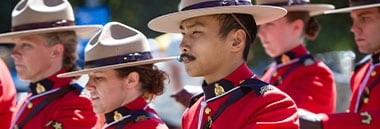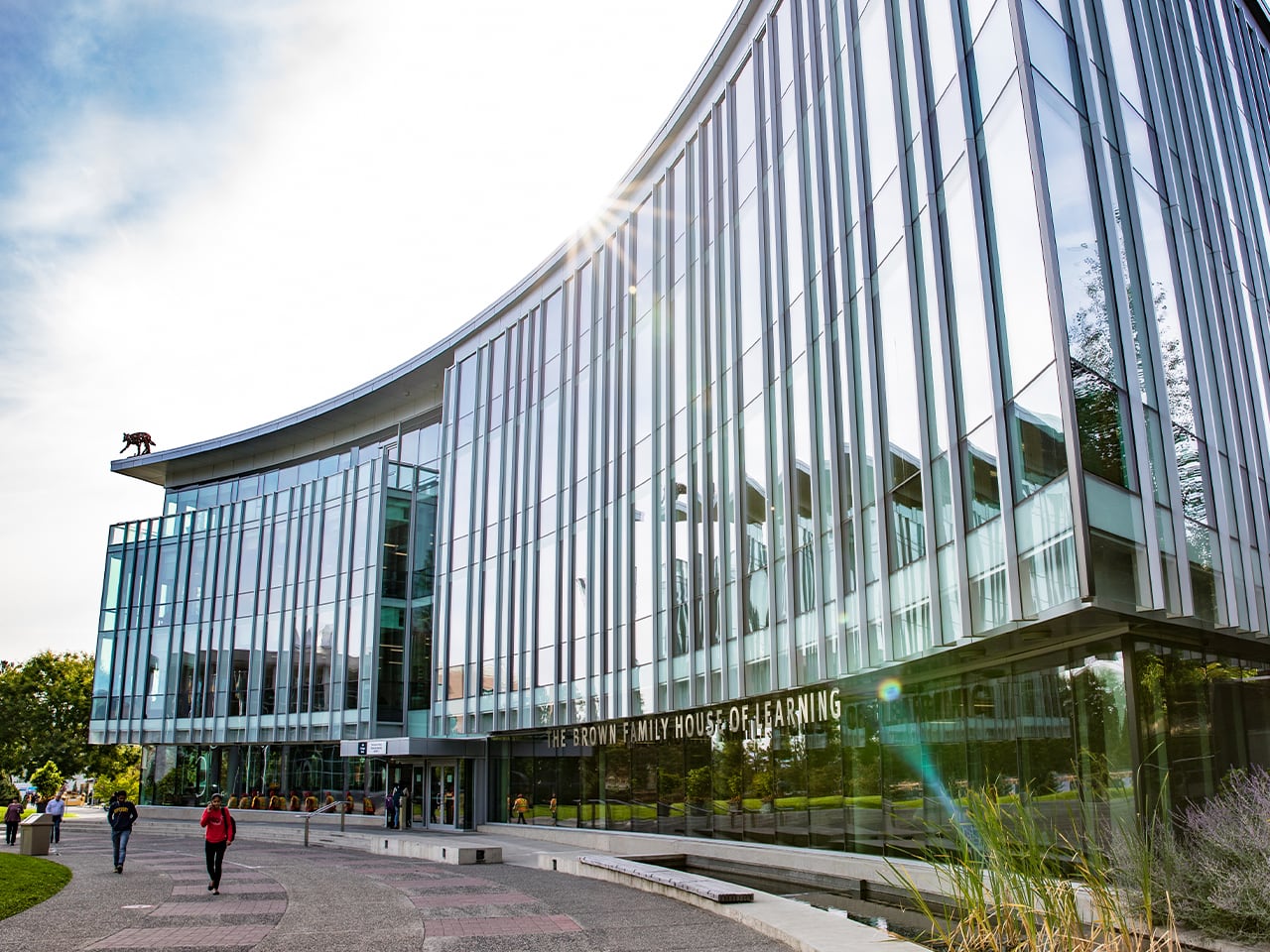Become a beacon of protection for your community by serving and protecting both life and property.
Developed with the insights and expertise of police and justice agencies, you’ll learn the knowledge and skills needed to succeed in a justice related career at TRU.
Pick up a well-rounded set of skills and gain knowledge in psychology, criminology, the Canadian criminal justice system, contemporary social and community problems, policing protocols, ethics and strategies, investigating and evidence, conflict management, justice communications and reporting.
Additionally, instruction in fitness, conditioning and lifestyle will teach you about the importance of health and wellness.
Why pursue a Police and Justice Studies Diploma?
The program was developed in close liaison with police and other justice agencies to ensure graduates would have the breadth of skills and knowledge required for a justice-related career.
Collaborative faculty
Your lecturers approach teaching with compassion for their students and truly foster a productive learning environment. Enjoy lively classes with enthusiastic professors, and active listening in smaller classroom settings.

What will I learn?
Developed with police and other justice agencies, this two-year program will prepare you for the challenges of a career in policing, as well as in corrections, parole, customs, and other government services at the federal, provincial or municipal levels.
Gain a complete overview of the Canadian criminal justice system. Examine the legislative, structural, and operational components of the criminal justice system in Canada. Learn to effectively communicate as a public safety personnel with the justice system. Examine core communication forms in the field, develop writing and speaking skills, along with skills in interpreting an array of communication scenarios.
Work on understanding human behaviour, using your ethical compass in new situations and stay in great shape with conditioning. Practice the use of force techniques in the gymnasium. Engage in hand-to-hand self-defence training, including handcuffing techniques, pressure points and control tactics and defensive baton.
Your diploma credits count towards completion of an arts, business or criminology degree if you decide to continue your education.
-
100% of graduates said that said the quality of instruction was very good or good
-
98% said they learned how to work effectively with others, resolve issues and analyze and think critically during the program
-
100% said they developed the skills to be able to write clearly and concisely, and read and comprehend material during their studies
-
87% of employed graduate respondents were working in a job related to their program
How the program works
Year one courses (30 credits)
Fall semester / September to December
- CMNS 1810 Composition
- JUST 1140 Human Behaviour
- JUST 1310 Intro to Criminal Justice Services in Canada
- PHED 1230 Conditioning
- Plus one elective
Winter semester / January to April
- CMNS 1980 Professional Presentation
- JUST 1250 Tactical Communication Skills for Criminal Justice
- PHIL 1110 Introduction to Critical Thinking
- POLI 1110 The Government and Politics of Canada
- Plus: one elective (recommended ANTH 2140)
We accept all academic courses as electives. For assistance with choosing your electives, contact Arts Advising (artsadvising@tru.ca, 250-371-5566 or AE257).
Year two courses (30 credits)
Fall semester / September to December
- JUST 2450 Police Skills
- JUST 2510 Introduction to Policing
- PHIL 2010 Introduction to Ethics
- SOCI 2590 * Deviance and Control
- Plus: one elective (3 credits)
Winter semester / January to April
- JUST 2350 Introduction to Canadian Law and Legal Institutions
- JUST 2810 Field Work Practicum
- SOCI 2010 ** Race and Ethnic Relations
- Plus: two electives (6 credits)
* Students who have completed PSYC 2160 Introduction to Abnormal Psychology will be exempted from SOCI 2590.
** Students who have completed any of ANTH 2140 Canadian Native Peoples, ANTH 2150 Cultural Studies, or ANTH 2600 Minorities in the Modern World will be exempted from SOCI 2010.
Selection process
GPA (weighted at 70%); and Resumé and Statement of Career Objectives (weights at 30%).
What you need to get in
Selective admission
- BC Grade 12 (or equivalent)
- English 12 or English 12 - First Peoples with a minimum of 73% (or equivalent)
- A current resumé and statement of career objectives is to be submitted with the application
Applicants should note that some required courses require physical fitness standards and may require a criminal record check.
General requirements
Year Two students: BC Class 5, 7N or equivalent needed to complete the Justice Institute’s, Driving With Finesse, (a required component of JUST 2450 Police Skills)
Career Options / Laddering options
Where will this diploma take me?
This unique two-year diploma program prepares you for careers in policing and other justice-related areas: sheriffs, corrections officers, parole officers and more.
Laddering options
Graduates of the Police and Justice Diploma may ladder into a variety of degrees:
- Bachelor of Arts, Major in Criminology
- Bachelor of Arts
- Bachelor of Business Administration
- Bacholor of Social Work
If you want to continue your education and ladder into other degree programs in criminology, arts and business, this is definitely possible and may just require a few bridging courses.
“Oh, where to start! One of the aspects of teaching that I love is seeing the lightbulb moment — that moment when a concept or idea clicks with a student, because that moment can be the beginning of a new passion, a new career trajectory, a new way of looking at the world. I constantly feel privileged to be a part of those moments in my students’ academic lives, and love trying to come up with creative and engaging ways to facilitate those moments.”
— Rochelle Stevenson, Associate Professor, Sociology
“I love the interaction with students, particularly when students discuss and debate an idea raised in class. I also love sharing knowledge with students, introducing them to ideas for the first time, and watching their eyes light up with curiosity or surprise or puzzlement. Awakening the mind of the student is the first task of the philosophy instructor, and I've always striven to do so. I have always been passionate in my teaching, and have endeavoured to communicate my passion for philosophy to my students. When a student becomes passionate about philosophy, then I feel that I have succeeded”
— Laurie Baugh, Philosophy, History and Politics faculty
“What I most enjoy about teaching is building strong relationships with students, and seeing students return to my classrooms year after year. I also appreciate watching students arrive at new revelations through experiential learning activities and discussions in the classroom — I love diving into my facilitator toolkit to explore different modes of learning and debriefing.”
— Jennifer Shaw, Assistant Teaching Professor, Sociology
Program Details
- Credential
- Police and Justice Studies Diploma
- Delivery
- Kamloops
- Length
- Two years
- Intake dates
- September
- Applications
- Now accepting applications
- International
- Open to international applicants



